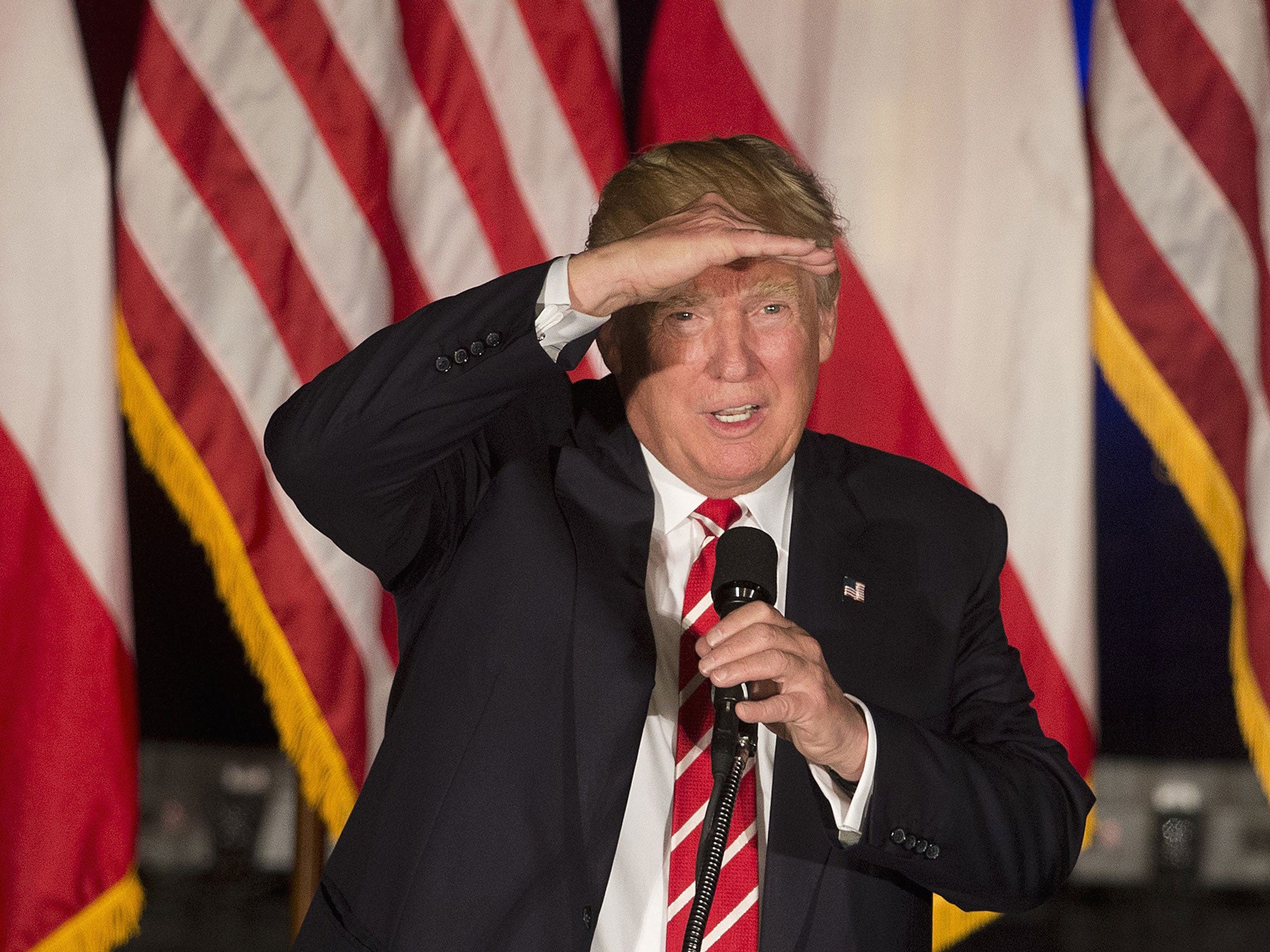Brexit has taught the world to take politics seriously – and that could stop Donald Trump becoming US President
What Britain has taught the world is that politics is not, or should not be, a frivolous matter; that demagogues who say they place their trust in the wisdom of the masses should be treated with immense caution


“Never was so much owed by so many to so few,” said Churchill of the RAF in the Second World War. The same might be said of the sacrifice Britain has just made for the Germans, who thanks to Brexit have finally shed the title of most disliked people in Europe, but also for the totality of the human race.
By almost absolute global consensus, the English and Welsh decision to vote Leave in the referendum was an error of epic proportions, plunging Britain overnight into a political and economic crisis entirely of its citizens’ own making.
This is bad for the UK but good for the world. The oldest parliamentary democracy has given the world a lesson of incalculable value in how not to make political choices if you aspire to live in a sane and prosperous nation.
What Britain has taught the world is that politics is not, or should not be, a frivolous matter; that demagogues who say they place their trust in the wisdom of the masses should be treated with immense caution; that decisions of state may all be debatable but require a minimum of civic responsibility from those who take them; that when politicians who govern or aspire to govern venture opinions on the economy, for example, they should know what they are talking about, or at least know more than the average man or woman on the street.
In short, those who have it in their hands to influence the lives of millions of people should possess some degree of honesty, seriousness and expertise. The experts were precisely those whose arguments were rejected by the British majority on whom the toxic rhetoric of Nigel Farage had much the same influence as beer on the hooligans who follow the English national football team.
It was Michael Gove who declared, in the single most revealing moment of the referendum campaign, that the British people had had enough of experts. That was the former Education Secretary's response to the anti-Brexit warnings of the Bank of England, the TUC, the CBI, as well as Barack Obama, Angela Merkel, the heads of government of Canada, Australia, India and the overwhelming majority of informed people on the planet. Listen to your patriotic hearts, said Gove to the voters, who, like people everywhere, take a much greater interest in football, or soap operas, or reality TV, or talent contests or, of course, their families and their jobs, than they do in politics, a minority sport go wherever you will.
All of which calls into question the argument put before elite audiences by one elite newspaper commentator after another that Brexit is the most alarming symptom to date of a global phenomenon they call “the revolt against the elites”. Thus do they explain the rise, for example, of Donald Trump or Marine Le Pen.
But anti-elitists, like the poor, have always been with us. Perhaps there is a simpler explanation, one rarely ventured by elite commentators because of their terror of being labelled elitist: that people, being largely uninterested in politics, are easily manipulated by those who are cynical enough and cunning enough to seek votes by appealing to their prejudices and resentments — in the particular case of the English by playing the immigration card to awaken the ancestral disdain and distrust they are taught to feel from an early age towards that faceless, dehumanised creature called Johnny Foreigner.
Why did a majority of Londoners and the Scots opt to listen to the experts and to the demagogues? Easy. Because British Londoners live in the most cosmopolitan capital in the world, and cohabit or work with foreigners every day whom they value for the economic and cultural wealth they bring to the city and whom they acknowledge to be as recognisably human as they are. As for the Scots, who have received large numbers of immigrants in recent years, there is a double explanation. One, is that they are not indoctrinated from an early age to believe, as the English hooligans in France do, that Britannia still rules the waves; two, that, as Michael Gove knows very well, the Scottish state education system is much superior to the English one. Scots possess in greater abundance than the English the knowledge and mental faculties required to distinguish between what is in their best interests and what is not; between serious-minded, sincere politicians like John Major and Gordon Brown, and frauds or bigots like Boris Johnson and Nigel Farage.
The useful lesson the British have given the world, then, is to be more alert than ever to the mendacious populists who appeal to people’s baser instincts. With luck the ghastly outcome of the EU referendum will make it less likely that American voters will succumb to the Pied Piper Trump, or the French to Le Pen; in the same way that with luck the apocalyptic disaster of the Hugo Chávez project in Venezuela will serve as a warning to voters in other Latin American countries. Yes, Nigel Farage and, in his own oilier way, Boris Johnson, have diminished Britain’s ancient democracy to such a lamentable extent that suddenly a comparison with a banana republic does not feel that way off the mark.
John Carlin writes for the Spanish newspaper El País

Join our commenting forum
Join thought-provoking conversations, follow other Independent readers and see their replies